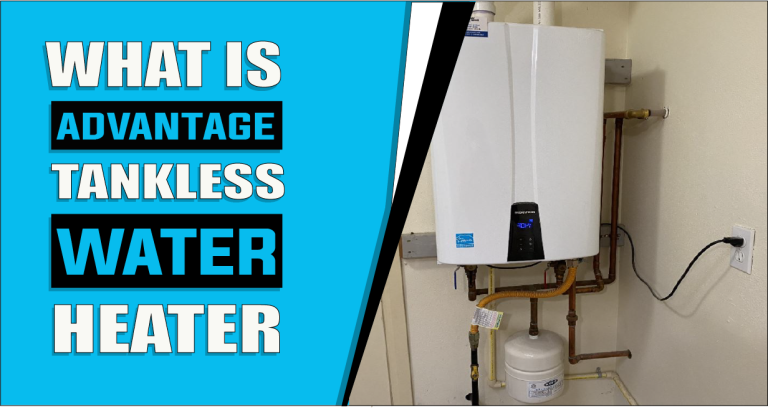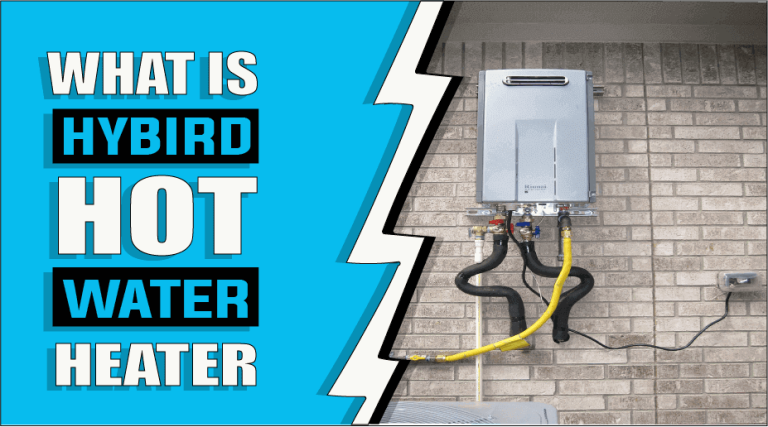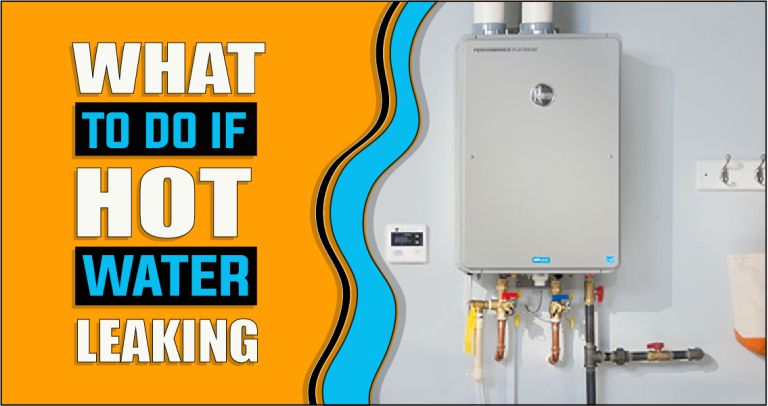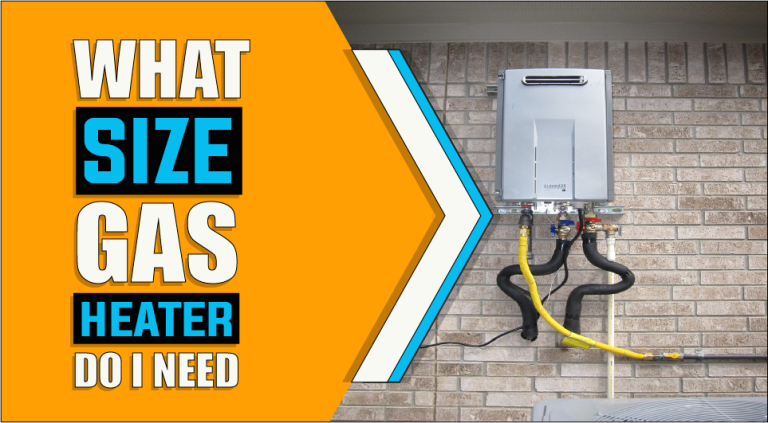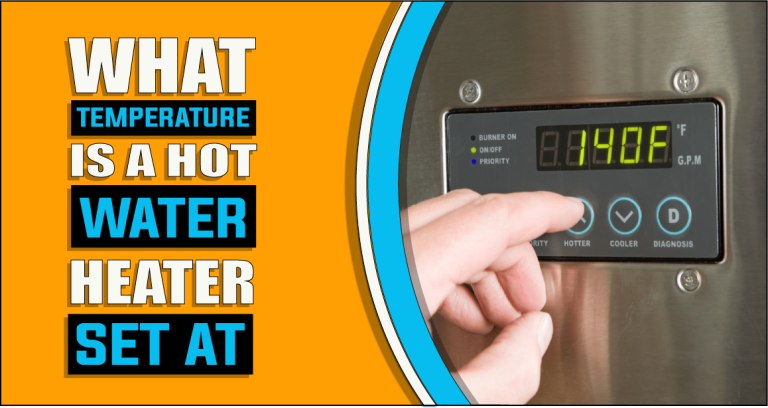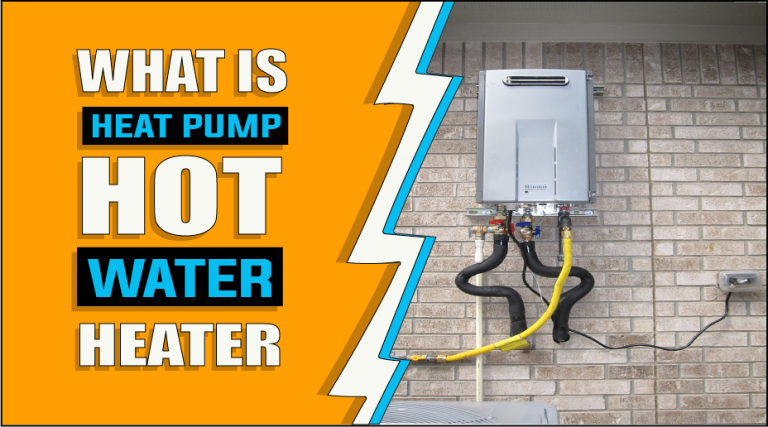Yearly Cost Gas Vs Electric Tankless Water Heater – The Truth Reveals
When it comes to convenience and cost-effectiveness, there’s no denying that tankless water heaters offer a host of advantages. By providing almost instantaneous hot water on demand, these energy-efficient models cut down on wasted energy and save you money each month. But whether you’re looking to replace an old, inefficient water heater or in the market for a new construction upgrade, one of the biggest decisions comes down to choosing between a gas tankless water heater and an electric version. This blog post will compare and contrast the yearly costs of gas vs electric tankless water heaters, with plenty of helpful information so that you can make an informed decision when it comes time to choose. We’ll also discuss some advantages and disadvantages associated with each type, as well as additional features that may affect your choice. Keep reading to find out all about which type best suits your budget and needs!
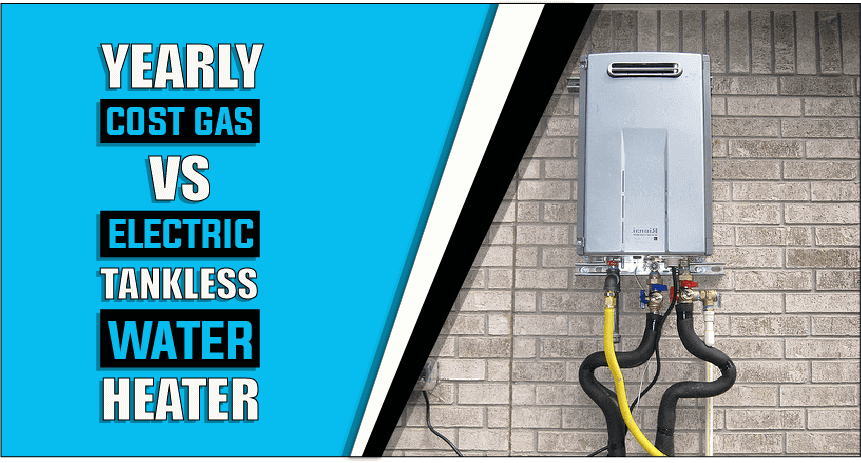
Let’s explore the yearly cost of gas vs electric tankless water heater
When it comes to selecting a tankless water heater, homeowners are often torn between the options of electric and gas. While both have their advantages, the cost of operation is an important factor to consider. Gas tankless water heaters tend to cost more up-front than their electric counterparts. But over a year, gas tankless water heaters are more cost-effective than electric models because they don’t require as much energy to run. Gas models can range anywhere from $800 – $2,000 while electric tankless water heaters are typically priced between $400 – $1,500.
According to energy star ratings, gas and electric tankless water heaters both save homeowners approximately 20%-40% in costs due to their efficiency over traditional storage-tank water heaters; however, gas models see a slightly larger return year-over-year. In terms of energy costs, gas tankless water heaters can range from $180 to $300 annually, while electric tankless water heaters cost closer to $500 per year.
Overall, yearly costs for gas vs electric tankless water heaters should be a factor in the decision-making process. Gas models are more expensive up front, but their energy efficiency translates to a more significant return year-over-year. Electric models may not offer the same savings as gas tankless water heaters, but they can still help reduce monthly bills while helping preserve the environment. Investing in either type of tankless water heater can help you save money and energy in the long run, so make sure to compare your options before making a choice.
Factors Influencing the Annual Operating Cost of Tankless Water Heaters
Homeowners have a lot to consider when choosing the right water heater for their homes. Tankless models are often more cost-effective, but several factors can influence how much you end up paying in annual operating expenses. From installation costs and energy efficiency ratings to climate differences across regions, it’s important to understand all of these details before making your choice!
1: Energy Factor
Each tankless water heater model has an energy factor rating that indicates how efficient the unit is. The higher the energy factor, the less electricity or gas you’ll have to use and pay for each year. Generally speaking, electric tankless water heaters are extremely energy efficient with a 0.98 Energy Factor, meaning that more than 98% of the energy supplied to the units is actually being used to heat the water. On the other hand, gas tankless water heaters generally have an Energy Factor of 0.82.
2: Energy Consumption or Usage
The efficiency of your tankless water heater is determined by adding two key factors, the energy factor, and frequency of use. The calculation for electric systems relies on kilowatt hours per year, while gas units are measured in terms of British Thermal Units annually to give you an idea of their total energy consumption!
3: Cost of Energy
The cost of energy can vary by region, so it’s important to keep this in mind when making your decision. Generally speaking, electricity tends to be more expensive than natural gas, so electric tankless water heaters will run more expensively than their gas equivalents.
4: Size of the System
The size of the system is a major factor influencing the annual operating cost of tankless water heaters. The larger the tankless water heater, for example, the more BTUs (British Thermal Units) it will require to heat your water and the higher your energy bills will be.
5: The Climate in Your Area
The climate in your area also plays a role in determining the annual operating costs. Areas that experience extreme temperatures throughout the year require systems that are capable of dealing with rapid changes in temperature, which can drive up energy bills. On the other hand, mild climates may permit homeowners to choose smaller systems with decreased energy requirements.
Gas vs. Electric Tankless Water Heater Comparison
Looking to upgrade your home’s water heating system? Consider swapping out a traditional tank-style heater for an energy-efficient gas or electric tankless model. Take time to compare, it could mean major savings in both cost, energy efficiency, and convenience over time!
1: Gas Tankless Water Heater
A gas tankless water heater is a type of appliance that heats water on demand. It uses natural gas to provide efficient and continuous hot water heating, eliminating the need for an external storage tank. Gas models are usually more cost-effective than electric ones in terms of energy efficiency and yearly costs although they require professional installation due to potential hazards associated with gas lines.
Cost of Installation
A gas tankless water heater typically costs between $800 and $2,000. Homeowners typically represent the entire cost of the system. There is another better method to look at the cost, which includes the cost of the device, the cost of installation, and the cost of several parts. This is a more insightful perspective than focusing only on the gas tankless water heater’s cost. You can learn more about the average cost of a gas tankless water heater by reading the breakdown of those prices that follow.
- Unit Cost:
Naturally, the unit’s price will have the most influence on the overall cost of the tankless water heater. Between $800 to $2,000 was spent on the gas tankless water heater. The GPM capacity will have the biggest impact on its price. An on-demand gas water heater costs more than the more capacity it has.
- Installation Cost:
How long it takes a plumber to install the appliance and how much they charge to determine how much the work will cost. The labor cost to install a gas tankless heater can reach $1,200. If a gas line needs to be installed, the cost would rise from $500 to $1,000.
- Cost of several Parts:
During the installation, your plumber may need to use $50 worth of connectors, fittings, and other components.
- Yearly Operating Costs
When it comes to operational costs, there’s no comparison between natural gas and electric tankless water heaters. On average, a gas unit will cost roughly $300 per year – substantially lower than that of an electric one because natural gas is cheaper as a fuel source. With this in mind, deciding which type of heater makes more sense for your budget just got easier!
2: Electric Tankless Water Heater
An electric tankless water heater is an energy-efficient appliance that uses an electric power source to heat water on demand during frosty winter months. This type of heater eliminates the need for an external storage tank, providing a continuous hot water supply without taking up much space. Electric models tend to be more affordable up-front, but they usually require a higher energy cost over time compared to gas tankless water heaters.
Cost of Installation
An electric tankless water heater typically costs $400 to $1,500. The device’s entire cost is broken down into three categories: unit cost, installation cost, and part cost below:
- Unit Cost:
A $400 electric tankless water heater is the least expensive model. The priciest models will run you up to $1,500.
- Installation Cost:
The labor expense is determined by the time it takes a plumber to install the appliance and their hourly rate. It should take two to three hours to install an electric tankless heater, and labor will set you back $450.
- Cost of several Parts:
The plumber might need to use connectors, fittings, and other components, all of which cost around $50.
- Yearly Operating Costs
Electricity is nearly always more expensive than natural gas, so when comparing the operating costs of electric and natural gas tankless water heaters, the electric device will run substantially more expensively than its gas equivalent. Your annual operating costs per electric unit will be approximately $500.
Pros and Cons of Gas Tankless Water Heaters
Gas tankless water heaters are a hot topic, offering both advantages and disadvantages. They can provide an endless supply of hot water on demand, but be careful this convenience may come at a higher initial cost.
Pros
- The flow rate is rapid up to 10 gallons per minute
- Yearly operating costs are typically lower because natural gas is cheaper than electricity
- Offers a continuous supply of hot water on demand
- Gas tankless systems can produce a higher temperature rise
- Some versions don’t need to be vented because they can be installed outdoors in milder areas, which results in lower installation costs.
Cons
- The installation can be costly and complex
- May require additional venting or gas piping for outside gas heating systems
- Yearly maintenance is necessary for optimal performance
Pros and Cons of Electric Tankless Water Heaters
Pros
- With a superior energy efficiency rating of up to 99%, it uses all or nearly all of the electricity it consumes
- The unit cost of an electric tankless water heater is usually less expensive than gas or propane models.
- Available for single faucet applications, either behind a shower wall or under a sink.
- Installation costs tend to be lower as no additional venting or gas piping is needed.
- No yearly maintenance is required, the device can simply be plugged in and forgotten about.
Cons
- Electricity tends to be more expensive than natural gas, and you’ll end up paying more for your operating costs in the long run.
- The flow rate is slower than that of gas models, averaging out to about 8 gallons per minute.
- Not effective at raising water temperature as gas units
Frequently Asked Questions
In general, gas is more affordable to use than electricity. Gas tankless water heaters can produce a higher temperature rise and have lower annual operating costs because natural gas is cheaper than electricity.
The main drawback of an electric tankless water heater is its higher annual operating cost because electricity is generally more expensive than natural gas. Additionally, electric units have a slower flow rate and may not be effective at raising water temperature as gas models.
Before making your purchase, be sure to consider your budget for both the initial cost and yearly operating costs. Additionally, you should take into account the size of your household and the flow rate needed for optimal performance.
Yes, electric tankless water heaters offer several financial benefits. The unit cost is usually less expensive than gas or propane models and there is no need for additional venting or gas piping, resulting in lower installation costs.
The amount of gas a tankless water heater uses depends on the size of your household and its usage rate. Generally, they use up to 10 gallons per minute, but this depends on how much hot water is needed.
Yearly maintenance is necessary for the optimal performance of gas tankless water heaters. Electric tankless water heaters do not require yearly maintenance. However, it is important to check your manufacturer’s instructions for recommended intervals of checking filters, flushing out the system, etc.
Conclusion
I hope you enjoyed this article on the yearly cost of gas vs electric tankless water heaters. When deciding between a gas or electric tankless water heater, the yearly cost should be taken into consideration. Gas models are more affordable to use than electric models due to their higher temperature rise and lower annual operating costs. However, electric tankless water heaters offer several financial benefits including lower unit cost and installation costs with no requirement for additional venting or gas piping. Yearly maintenance is necessary for the optimal performance of gas models, while electric units do not require yearly maintenance. All in all, it is important to consider your budget and household size when choosing between these two options to get the most bang for your buck.
Ella John is passionate about helping her readers make the best choice when purchasing a heater. She understands that selecting a heater can be difficult and strives to provide information to help make the decision easier. Ella’s website, Heatersinfo.com, provides valuable insight into heating trends and types of heaters and tips on how to care for them. She also advises selecting the right heater based on individual needs and preferences. Her expertise in electronics makes her an excellent source of knowledge, and she is confident that anyone who visits her website will find the perfect heater information for their needs. Ella’s dedication to helping others make educated decisions about buying the right heater is unparalleled, and she hopes to continue offering her expertise for many years. With Ella’s help, finding the perfect heater can be a breeze!

